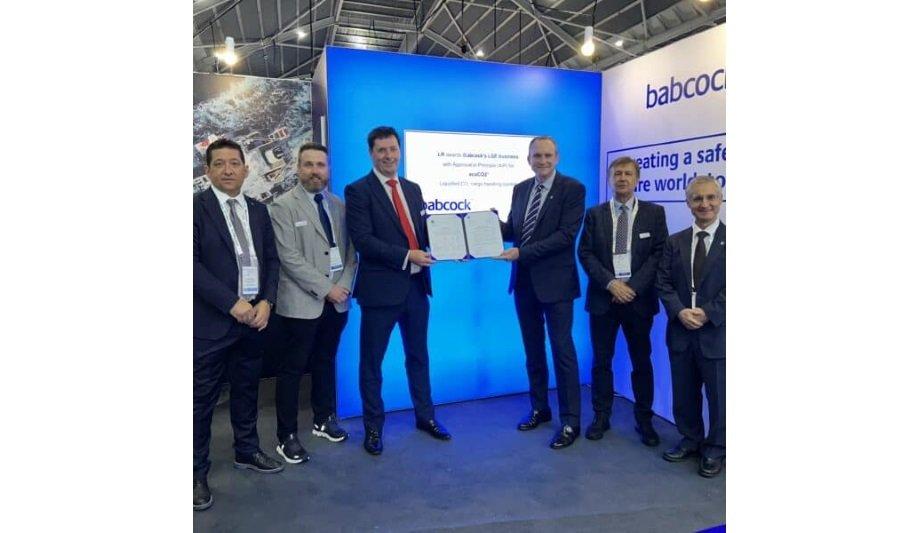Babcock’s LGE business, the pioneer in liquefied gas solutions, has received Approval in Principle (AiP) from Classification Society Lloyd’s Register for its multi-fuel gas supply and CO2 cargo handling systems ecoFGSS-FLEX® and ecoCO2®.
The AiPs were awarded to Babcock’s LGE business during Gastech 2023 in Singapore and represents another milestone in the company’s environmental technology development.
Fuel for future application
ecoFGSS-FLEX® gives ship owners the ability to use one of two fuels and lowers emissions on a broad range of vessel type by using LPG. It is based on Babcock’s proven ecoFGSS® LPG fuel gas system, which already has 25 systems currently on order and/or in service.
The new, larger eco-FGSS-FLEX® system enables the use of ammonia as a fuel for future application
Whilst the fundamentals of ecoFGSS® and eco-FGSS-FLEX® are the same, the new, larger eco-FGSS-FLEX® system enables the use of ammonia as a fuel for future application when engine technology and global supply chains are established with minimal or no disruption to the fuel gas supply system. It represents a step change in the market, where uncertainty of both technology, investments and fuel availability is restricting decision-making over which fuel best suits the platforms.
Discharge terminal parameters
The ability to use one of two fuels gives reassurance to investors and can have a major impact on the emission profile of a global fleet. Babcock has also received AiP for ecoCO2, its CO2 cargo handling system, which is designed for the full Carbon Capture, Utilisation and Storage (CCUS) value chain.
The innovative solution accounts for a range of operating parameters including shipping profiles, loading and discharge terminal parameters, cargo composition and cargo volumes. Neale Campbell, Managing Director of Babcock’s LGE business, said: “We are delighted to receive AiP for two of our new LGE products.”
Ever-changing and complex market
The solutions offered by Babcock’s LGE business matter more now than ever and in ecoFGSS-FLEX®"
“The solutions offered by Babcock’s LGE business matter more now than ever and in ecoFGSS-FLEX®, we have a product which will allow ship owners to decarbonise quickly and efficiently in an ever-changing and complex market.”
“With ecoCO2®, we have a product which has been designed using tried and tested equipment and adheres to industry safety standards and environmental legislation. As world leaders in liquefied gas solutions, we’re delighted these two exciting products have been recognised by Lloyd’s Register as systems which are ready to go.”
Safe and efficient transportation
Jose Navarro, Global Gas Technology Director, Lloyd’s Register, said: “Lloyd’s Register is delighted to award Babcock Approval in Principle for its liquefied CO2 cargo handling system and multi-fuel gas supply system. ecoCO2® represents a critical piece of the CCUS supply chain that will contribute to the reduction of global warming. It has been appraised fully in compliance with the requirements of LR’s Rules and Regulations for the Carriage of Liquefied CO2, providing assurance to owners and relevant stakeholders for the safe and efficient transportation of LCO2.”
“ecoFGSS-FLEX® represents a solution for the conversion of a fuel gas system and facilitating the use of ammonia as fuel – a significant positive step to assist owners in the decarbonisation path of their ships. coFGSS-FLEX® has been approved for compliance with LR’s Rules and Regulations for the Classification of Ships using Gases or other Low-flashpoint Fuels, including Appendix LR2 – Requirements for Ships Using Ammonia as Fuel.” The AiPs were awarded to Babcock’s LGE business during Gastech 2023 in Singapore.












